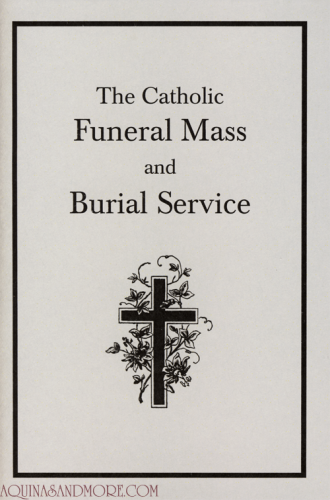Posted by Richard Rawlinson
Réquiem ætérnam dona eis, Dómine (Eternal rest give to them, O Lord).
There is often talk about the tone of funerals: the balance between celebrating a life and grieving a loss; the ratio of bespoke parts reflecting individuality, to formulaic parts reflecting the universality of death.
Catholics expect this balance in the funeral rites, too. In the Prayer Vigil, or wake held between death and funeral, allowing the bereaved to say their goodbyes. In the Requiem Mass, which allows for personal choices of hymns, Bible readings, prayers and words of remembrance. In the Committal, the final leave-taking at the graveside or crematorium. In any post-Committal drinks party.
That care should be taken so any secular poems and songs chosen for the prayer vigil or words of remembrance should be in keeping with the Christian faith is unlikely to be an obstacle for someone opting for a Catholic funeral.
But the wealth of church music invariably fulfils, from the Requiem Masses by Verdi or Mozart to Celtic chants such as this rendition by Matt Meyer of Litany of the Saints.If you must, you can even select schmaltzy hymns, though not over my dead body, please.
Sacred literature also serves to offer thanksgiving to God, as well as prayers for the deceased and support for the bereaved. Psalm 23, ‘The Lord is my shepherd, I shall not want’, is a popular choice as are certain readings from St Paul’s letter to the Romans, or this prayer by Cardinal Newman:
‘O Lord, support us all the day long of this troublous life, until shadows lengthen, and evening comes, and the busy world is hushed, and the fever of life is over, and our work is done. Then, Lord, in thy mercy, grant us a safe lodging, a holy rest, and peace at last. Amen’.
Such selections blend with the familiarity of the Eucharistic liturgy as all masses, funeral or otherwise, re-enact the Easter journey of Jesus Christ from death to resurrection.
Keeping God central as the author of all life is occasionally greeted with mixed emotions. The bereaved can be feeling anger and want the sole focus to be on their deceased. In this state, they may think their beloved doesn’t need the Credo , Pater Noster and Hail Mary repeated to help the deceased to rest in peace. As the mass is celebrated, they may drift off into private contemplation of the person they have lost.
However, those attending the funeral mass more often gain comfort from it, playing their part in willing the deceased Godspeed, contemplating the good that merits God’s love, and the sins that require forgiveness.
Whatever music and spoken words are chosen, those meditative moments of golden silence are what makes each funeral unique. Still waters run deep.



I thoroughly enjoyed reading this article due to the fact that it shows the balance it speaks of: while it shows the *universal* characteristics of a Catholic funeral, it does not neglect to reveal that every funeral – as it is about a unique person – is in and of itself unique. But the article does more than that: it also speaks of the differing emotions and inputs people have attending the same funeral. This is what reality is: no two funerals are the same and no two persons attending the same funeral are the same. In a way, the… Read more »